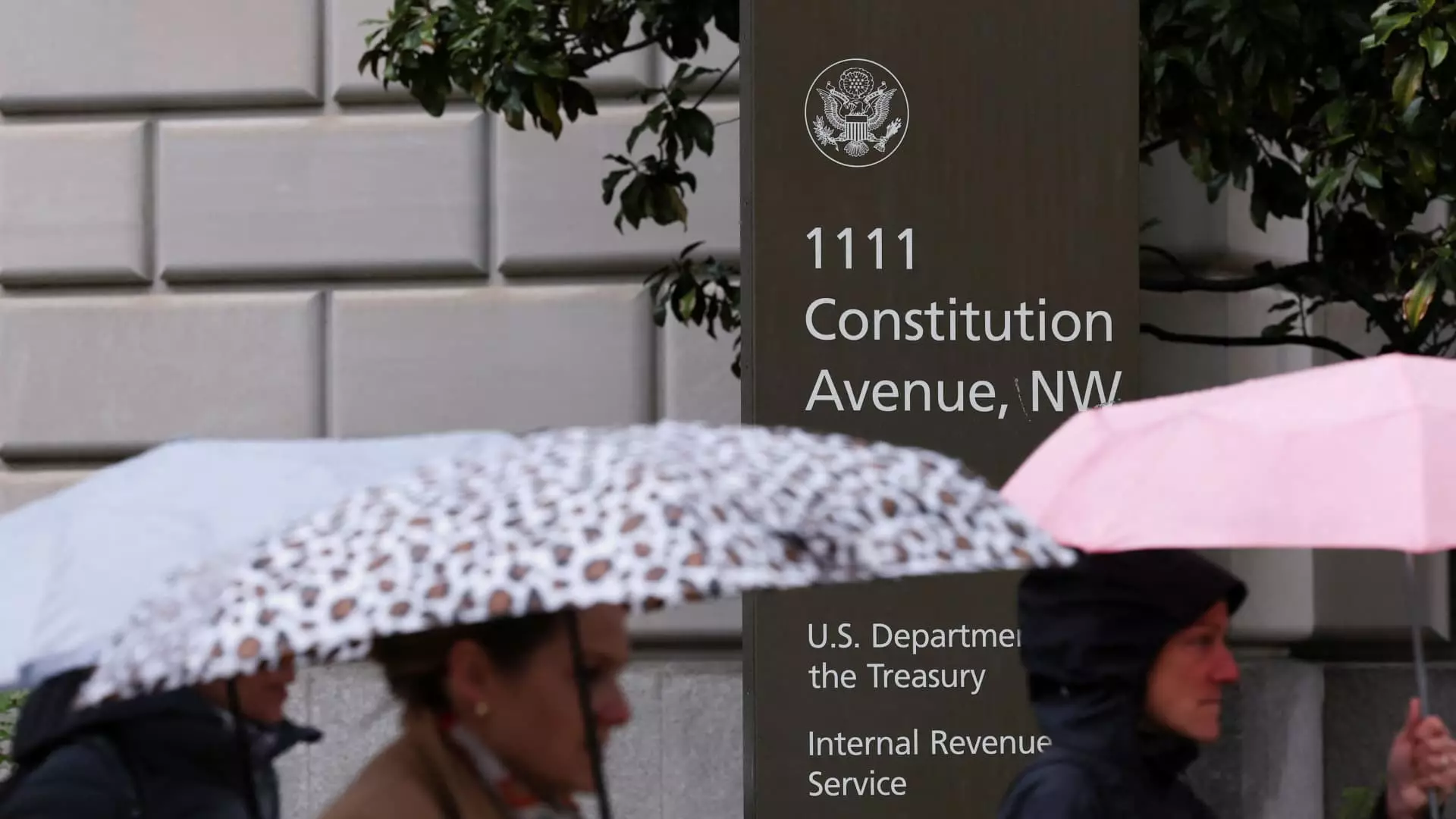In 2024, Congress allocated a staggering $80 billion to the IRS with the noble intention of enhancing tax compliance by scrutinizing the wealthy’s complex financial structures. The objective was clear: to hold high-income individuals accountable, particularly under the Biden administration’s directive to increase audit rates for those earning over $10 million annually. However, the recent drastic staffing cuts, including the abrupt dismissal of skilled professionals like Wesley Stanovsek, is not only counterproductive but also sets off alarm bells for the future of tax revenue collection.
The agency has been gutted, with estimates indicating that it could lose a third of its workforce due to firings and voluntary buyouts. Stanovsek’s experience serves as a poignant example. His termination not only jeopardizes cases involving significant potential tax liabilities but also manifests an indifference towards enforcing compliance among the wealthy elite. This is troubling, as the IRS was recently focusing on complex enterprise cases, intended to claw back revenue from multi-faceted tax arrangements that often skirt the edges of legality.
A New Age of Tax Evasion Perhaps?
The optimism that came with the IRS’s funding is rapidly turning to pessimism as taxpayers—especially the affluent—count their blessings. The logistical bottleneck created by these staffing cuts is likely to foster an environment ripe for opportunism, with wealthy individuals and their advisers eagerly embracing aggressive tax strategies that could easily slip through the cracks of an already faltering system.
Historically, when the IRS has faced budget constraints, regulations become lax, and complex tax schemes proliferate. Kathleen Pakenham, a seasoned tax attorney, pointed out that inherent weakness in enforcement might lead to a revival of esoteric tax structures that are ultimately deemed illegal. The irony is palpable: the very systems intended to hold the wealthy accountable are now at risk of becoming a playground for tax evasion.
Supporting this hypothesis, a Yale Budget Lab study warns that enduring IRS cuts could lead to a jaw-dropping loss of $160 billion in tax revenue over the next decade. Some estimates suggest the figure for 2024 alone could surpass $500 billion. This scenario is not merely a projection of lost revenue; it’s reflective of a broader systemic failure that harms the budgetary integrity of crucial public services.
Who Gets Caught in the Crossfire?
As cases languish in limbo and audits go dark, the fallout from understaffing doesn’t just impact the wealthy; it reverberates throughout the economy. Tax attorney Robert Romashko recounts how one of his clients has been left in agonizing uncertainty over an $8 million audit, with no assigned appeals officer to resolve the matter. Such bureaucratic inertia not only stifles individual taxpayers but also stymies economic activity at large.
The reality is painfully clear: when the IRS cannot adequately resolve issues or handle transactions like tax lien payoffs, economic activity slows. Jurisprudence for high-net-worth individuals often involves intricate webs of asset management, and any delay in IRS response can freeze critical sales or investments. These moments are not merely annoyances; they can wipe out livelihood opportunities and inhibit economic growth.
Is Technology the Savior or a Shortcut to Disaster?
Treasury Secretary Scott Bessent projects optimism about integrating artificial intelligence (AI) into the IRS, claiming that it can lead to greater efficiency and revenue collection. However, this viewpoint is laden with pitfalls. While AI has strong capabilities in pattern recognition and initial assessment, it lacks the nuance that human expertise provides. Tax law is intricate and rife with exceptions that require seasoned judgment, something AI lacks.
The caution here is that while AI may possess “X-ray vision” when identifying potential tax abuses, it cannot replace the critical human element necessary for sophisticated audits. Misinterpretations might lead to catastrophic tax outcomes for innocent taxpayers, amplifying mistrust in an already beleaguered agency.
A Dual-Edged Sword of Compliance and Evasion
In the end, the fallout from IRS cuts places tax compliance under threat, potentially creating a resurgence of faults within the financial system. Wealthy taxpayers, instead of fearing audits, may actively exploit the weakened enforcement landscape. The notion of complacency among the wealthy could foster not only tax evasion but also a broad increase in the use of loopholes, diverting funds away from essential public services.
As we look to the years ahead, the fate of tax compliance hangs precariously in the balance. The void left by experienced IRS agents could breed a culture of impunity among wealthy tax filers, further widening the chasm of economic inequality. The vested interests of wealthy taxpayers must not overshadow an equitable tax system that requires robust enforcement, lest we all pay the ultimate price.


Leave a Reply